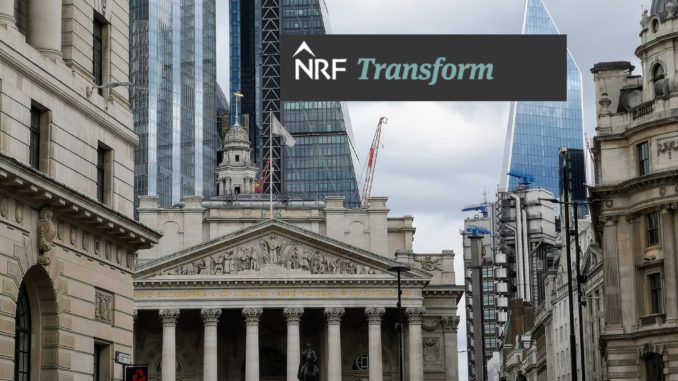
Global law firm Norton Rose Fulbright (NRF) has launched its own IBOR repapering platform utilising a range of tech tools, including eBrevia and Kira Systems, with the potential to use four other NLP-driven doc review tools. The move comes amid growing demand in the financial services sector for more efficient solutions to the massive transition exercise facing the global banking system as we move on from LIBOR.
The move to have multiple vendors is interesting as it suggests law firms, despite appearances, are not necessarily wedded to one solution that they may have worked with already and invested time on in terms of machine learning and team experience.
As seen recently with Allen & Overy, which is working with Factor, Eigen Technologies and iManage RAVN, IBOR is generating some interesting work for multiple legal tech companies and also for ALSPs.
In this case, NRF’s solution is designed to centre around well-known doc review and analysis systems eBrevia and Kira, but the team behind the project has also trained itself on using four other NLP systems so that the banks and other organisations they may work with – and who may hold licences with other vendors already – can also be accommodated without it disrupting the process.
Other tech involved in the platform includes data-sharing company HighQ, which is now part of Thomson Reuters, as well as DocuSign.
Davide Barzilai, a London-based partner and head of the firm’s global IBOR Transition team, told Artificial Lawyer: ‘We knew we had to be able to handle this [IBOR transition] and we needed to adapt tools to meet that need.
‘We were experienced with doc review, for example we were already working with Kira. But we also wanted to look at more options, and have a more tech agnostic approach, so if a client preferred another tool, perhaps because they had a licence [for another system] we could work with that.’
He explained that the goal has been to build an end-to-end solution that has also added in logic tools to help sort the extracted data, and doc automation tools for producing new output, and generally creating a complete digital process that NRF’s lawyers could work hand-in-hand with.
Barzilai didn’t want to mention the names of the other four NLP doc review companies, but added that they had done ‘a full dress rehersal’ with each system.
He noted that one of the challenges with this tech is that even though it is now tried and tested, each system has pros and cons, and slightly different ways of working. And that meant the firm had to get experienced on six different systems.
‘The tools are similar, but it’s all very much in the detail. It’s only once you are knee deep into an exercise [that you see how each type of software performs],’ he added.
David Carter, chief product officer and lead on the firm’s global change and innovation programme, NRF Transform, underlined that one of the main challenges for any type of review/analysis exercise is training the NLP/machine learning tools on the same relevant doc set, as only then can you see how each performs with IBOR.
Carter added that they chose to use HighQ mainly because it was ‘whitelisted’ by big banks and corporations as a ‘safe’ piece of software in terms of security. However, Artificial Lawyer got the impression they were not 100% sold on the data-sharing solution.
Carter also explained that the goal was to design a platform that could operate with a playbook, however they also needed to be flexible enough to deal with repapering cases that didn’t easily fit into the playbook that defined the workflow.
‘We built in flexibility and have escalation points [in the workflow], and so can then codify in new things and put that back into the system,’ he concluded.
I.e. they have the ability to keep refining the system as they go along, showing that even with so much preparation, NRF, and all other major firms handling IBOR tasks, will still need to learn as they work their way through this massive market change project.
Note on IBOR from NRF
‘We are now transitioning away from LIBOR as a benchmark. Plans are still on track for the rate to be phased out completely by the end of 2021, with a number of milestones in relation to Sterling being extended to the end of Q1 2021. As a result, work on the lengthy and complex contract repapering and risk mitigation exercise each Financial Institution has to undertake must continue without delay.’
–